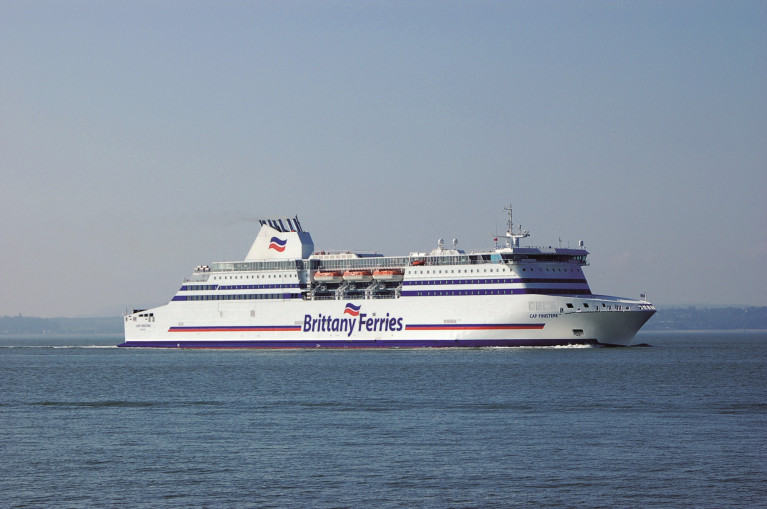Hot on the heals of Stena Line's new Dublin-Cherbourg route announced today, Brittany Ferries has also acted quickly to support the freight sector and meet the needs of an industry battling Brexit by confirming a new weekly Rosslare-Cherbourg service.
As Afloat reported back in July, this new Ireland-France service which was due to commence in March, will begin service on Monday, 18 January 2021. This new service will initially be served by the Cap Finistère.
Afloat adds Stena Line increased freight space with the brand new Stena Embla but on the Rosslare-Cherbourg route with the ferry completing a first round trip today. This follows Irish Ferries which only last week deployed W.B.Yeats onto the Dublin-Cherbourg route but much earlier so to alleviate pressing freight concerns over capacity.
As Brittany Ferries highlight, Irish and French hauliers have traditionally relied on the UK-land bridge when transporting goods to and from mainland Europe. However, since the beginning of the year, more companies have sought an alternative to the additional administration, new formalities, greater costs and potential delays that come from carrying goods though the UK.
Therefore, the French operator confirms today that Cap Finistère will cover the twice weekly sailing connecting Rosslare and Bilbao, taking over from Connemara until 10 February. As a consequence of this ship’s flexibility, Brittany Ferries will also add a weekly rotation connecting Rosslare with Cherbourg to the schedule, opening this Ireland-France route two months earlier than originally planned.
“Brittany Ferries prides itself on decisive action, based on the flexibility of its fleet and we can meet the needs of the marketplace quickly,” said Christophe Mathieu, Brittany Ferries CEO. “Cap Finistère is our fastest Ro-Ro vessel and she is therefore well suited to opening this new Brexit by-pass, making an additional sailing each week connecting France and Ireland.”
Glenn Carr, General Manager, Rosslare Europort said “all at Rosslare Europort welcome Brittany Ferries’ swift response to the needs of Irish industry in commencing this year’s Rosslare to Cherbourg services two months earlier than planned. We have worked closely with Brittany Ferries in ensuring that arrangements for the service were quickly put in place, further cementing Rosslare Europort’s position as Ireland’s Gateway to Europe.”


























































